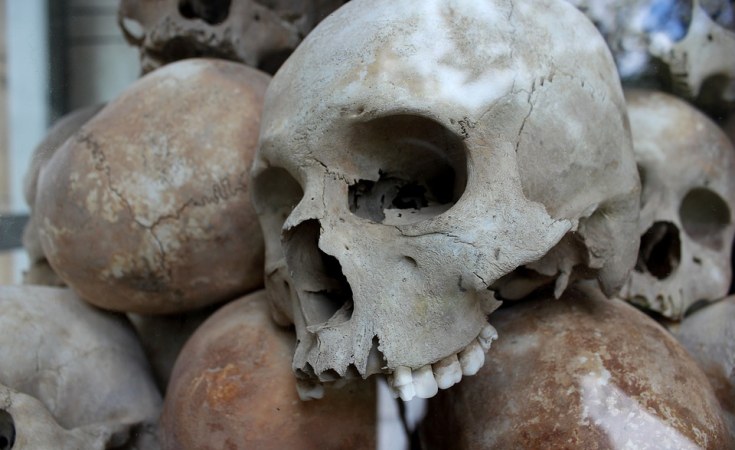Rwanda today begins commemorating the 29th anniversary of the 1994 genocide, in which 800,000 people, most of them from the Tutsi ethnic group, were massacred by members of the Hutu community.
The killing started on 7 April 1994 and lasted 100 days. It cost the lives of 800,000 people, mostly from the Tutsi ethnic group. They were murdered by their neighbours.
The Rwandan Ministry of National Unity and Civic Engagement (MINUBUMWE) has urged the public to respect the guidelines issued ahead of this week's ceremonies.
"Commemorative activities will begin at the Kigali Genocide Memorial on 7 April, where over 250,000 victims are laid to rest," Jean Damascene Bizimana, Minister of the MINUBUMWE, told journalists in the capital, Kigali, on Wednesday.
The themes of this year's commemoration are "Kwibuka twiyubaka: Remember-Unite-Renew", and events will continue until 13 April, he added.
Day of Remembrance
The UN designated 7 April as the Day of Remembrance of the Victims of the Rwandan Genocide in 2003.
The first remembrance was held 10 years after the genocide, in 2004. This year sees more commemorations, in Rwanda but also among the widespread diaspora, 29 years after the events.
In Rwanda, the day is observed as Genocide Memorial Day under the name 'Kwibuka,' which means 'to remember.'
Every year, 7 April marks the beginning of a period of national mourning that lasts until 4 July, known as Liberation Day.
Thousands of people around the world also participate in memorial services, involving candle lighting and a moment of silence to remember those who died.
This year, in Paris, a ceremony will be organised on Friday by the Ibuka charity, which is charged with keeping the memory of the victims alive. The Mayor of Paris, Anne Hidalgo, is expected to attend.
In 2021, French President Emmanuel Macron asked Rwandans to "forgive France for its role in the 1994 Rwandan genocide."
Speaking at the genocide memorial in Rwanda's capital Kigali, the French leader said France had not heeded warnings of impending carnage and had for too long "valued silence over an examination of the truth".
However, he stopped short of apologising.
BAFTA Nomination
In the UK earlier this year, Jo Ingabire Moys' short film 'Bazigaga' became the first Rwandan film to be nominated for a BAFTA award. The film was inspired by the true story of a woman who pretended to be a witch doctor to save hundreds of lives during the genocide.
It covers a single day in April 1994 and recalls the deaths of the victims.
About 2,000,000 people were displaced when their homes were destroyed.
Civil War beginnings
The Rwandan genocide began during the Rwanda Civil War, and was part of a larger campaign of ethnic cleansing against Tutsis.
The slaughter began when a plane transporting then-President Juvénal Habyarimana and Burundi's President Cyprien Ntaryamira, both Hutus, was shot down. The Rwandan Patriotic Front (RPF), whose members were mostly Tutsis, was suspected of carrying out the attack. Hutu radicals launched a campaign of revenge.
For 100 days from April 7 to mid-July 1994, members of the Hutu majority administration promoted the murder of members of the Tutsi minority and anybody who protested the aims of genocide.
The RPF, led by Paul Kagame, finally gained control of the capital and most of the country in early July, 1994, effectively bringing the indiscriminate slaughter of Rwandans to a stop.


